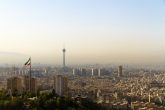September 17, 2018
Turkey and the United States Should Work Together to Avert Disaster in Idlib
Over the weekend, the Bashar al-Assad regime announced the start of its campaign to retake Syria’s Idlib province—a region home to an estimated 3 million people, including around 1 million displaced from other parts of Syria. Despite years of failed policies, the United States still has tools at its disposal to mitigate what could be a coming humanitarian catastrophe on a larger scale than even the one in Aleppo.
The first challenge with Idlib is that it has become a depository for Assad regime opponents from all over Syria. In recent years, Assad, with Russian and Iranian support, has retaken large areas of the country, particularly focusing on various de-escalation zones in western Syria meant to freeze the fighting between the regime and the rebels. Each campaign has ended with a deal under which the rebels surrender but are allowed safe passage to Idlib. In the coming campaign, there will be no place for them to go, meaning we are likely to see a much uglier fight to the death, which is why there have been reports of the Assad regime seriously considering using chemical weapons. There is a moral imperative for the United States to do what it can to stop or prevent the worst outcomes.
The battle could also result in massive refugee flows into Turkey. In 2016, Turkey and the European Union cut an agreement under which Turkey agreed to host most of the Syrian refugees in exchange for financial support, thus stemming the mass migration to Europe that had been causing significant political tensions and instability. But a massive new flow of refugees could cause the Turks to reconsider, potentially throwing Europe once again into chaos.
Further complicating the matter is that, as U.S. counter-Islamic State envoy Brett McGurk put it, Idlib has become “the largest al Qaeda safe haven since 9/11.” The challenge is that al Qaeda is marbled with other less ideological opposition groups that all oppose Assad, and trying to separate them out and eliminate al Qaeda is exceedingly difficult. But the answer is not a highly destructive offensive launched by Assad that would lead to the single worst humanitarian crisis in an already horrible war.
Read the Full Article at Foreign Policy
More from CNAS
-
The Axis of Upheaval
The West has been too quick to dismiss the coordination among China, Iran, North Korea, and Russia....
By Andrea Kendall-Taylor & Richard Fontaine
-
Iran ‘minimizing impact’ of Israeli strike: analyst
ranian media reported explosions, but an Iranian official told Reuters those were caused by air defense systems. State media said three drones over the central city of Isfahan...
By Jonathan Lord
-
Proxy battles: Iraq, Iran, and the turmoil in the Middle East
Since Hamas’s attacks sparked the war in Gaza on 7 October 2023, a dangerous cycle of escalation has played out across the Middle East. Iran and its proxies – such as the Hout...
By Hamzeh Hadad
-
Blaise Misztal and Jonathan Lord on U.S. Ceasefire Push in Israel-Hamas War
Blaise Misztal of the Jewish Institute for National Security of America and Jonathan Lord from the Center for a New American Security talked about the new push by the U.S. for...
By Jonathan Lord




